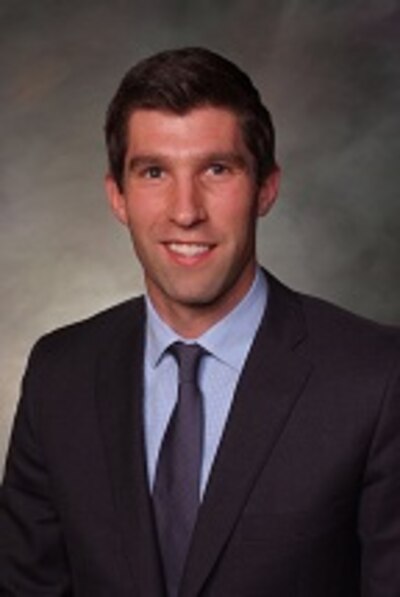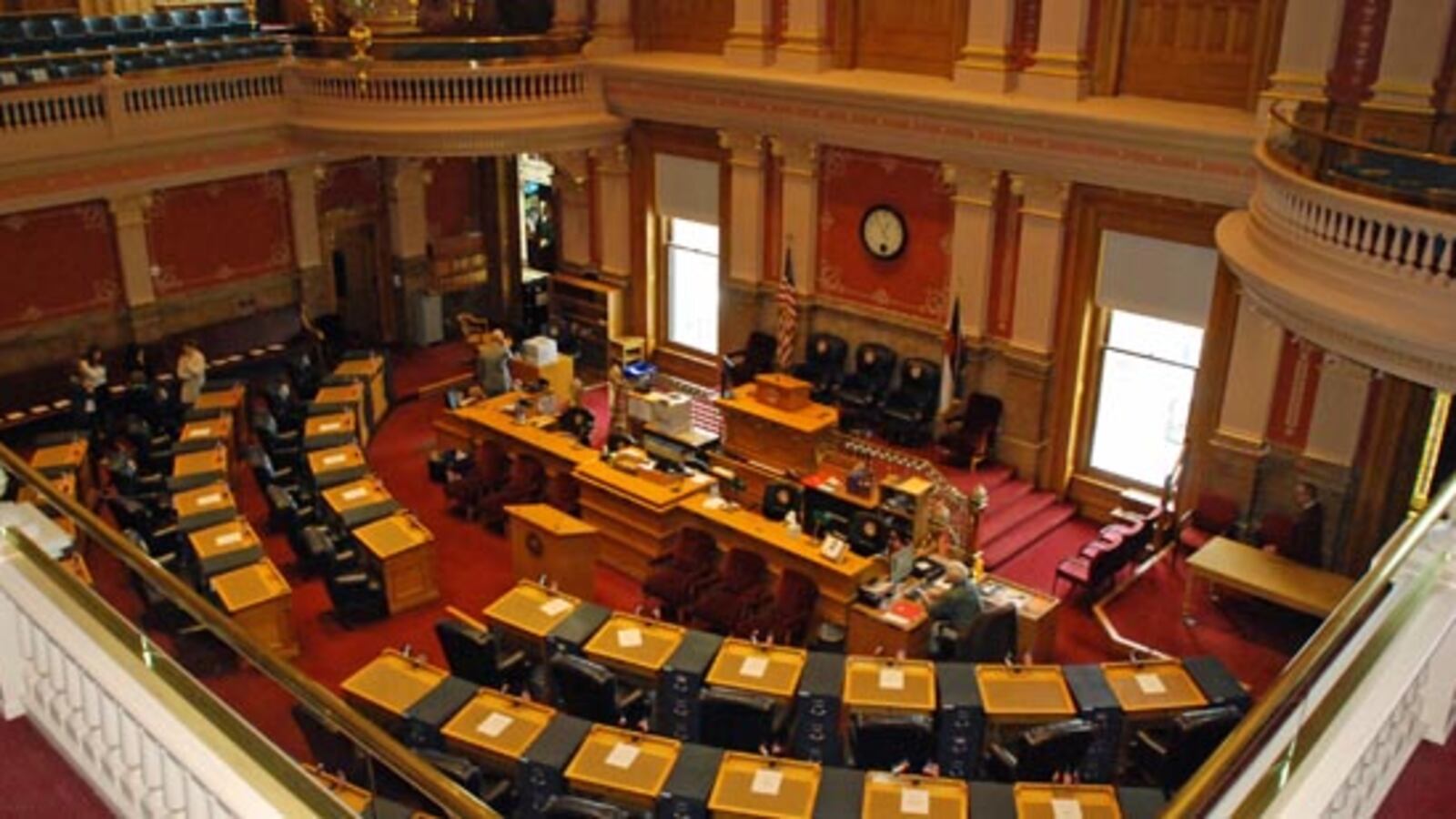The 2015 session of the Colorado General Assembly was gaveled to order Wednesday morning with the usual bipartisan bonhomie and a long agenda of tough issues, including school finance and testing.
“We’ve got bills coming in by the stacks,” new Speaker Dickie Lee Hullinghorst, D-Boulder, told reporters during a pre-session briefing.
Everybody in the legislature seems to agree the burden of standardized testing should be lightened, but how to do that is an open question. And there will be renewed pressure this year to shrink the state’s K-12 funding shortfall, an effort that may conflict with other budgetary priorities.
Those debates will play out in a reconfigured legislature. Last November’s elections brought more than 20 new lawmakers to the Capitol, and the vote count ended with Republicans in control of the state Senate and a Democratic majority in the House of Representatives. In the past split control often has meant compromise and meeting in the middle – and defeat of ideological bills from both ends of the political spectrum.
Most important for education, the leadership and membership of the Senate and House education committees are significantly changed for 2015. Republican Sen. Owen Hill of Colorado Springs will chair the Senate panel. Rep. John Buckner, D-Aurora, takes over as House Education chair, vacated when Democratic Rep. Millie Hamner of Dillon moved to the Joint Budget Committee.
Most Capitol observers expect Senate Education will have the higher profile, given a range of personalities and views among its nine members and the fact that seven of them have prior committee experience. House Education is seen as less seasoned, with six of 11 members having prior experience on the panel.
Will 2015 be a session of second thoughts?
Starting with the 2008 session, Colorado lawmakers have passed a series of important education laws that required new academic standards, the expanded testing system, an updated method for rating districts and schools, a more rigorous way of evaluating principals and teachers and improved systems for determining school readiness and reading skills in young students.
The steep challenges of making those laws work in classrooms have become apparent in the last two years as implementation began, sparking some pushback from educators, who’ve also been joined by parents and students in criticism of testing.
And lawmakers from both parties talk increasingly about local control and giving districts and schools more flexibility.
Such talk makes education reform advocates a bit nervous. “The big concerns are going to be around all the initiatives that have taken place and to make sure we don’t step back,” said Bill Jaeger, vice president of early childhood initiatives for the Colorado Children’s Campaign.
Here’s a look at the top education issues are shaping up 2015, based on interviews with a wide range of legislators, education advocates and lobbyists.
Testing in the cross hairs
Capitol observers agree assessment will be the top education issue, and there’s wide agreement state-required testing will be cut back.
“No legislator will argue we don’t have enough testing,” notes Sen. Andy Kerr of Lakewood, the ranking Democrat on Senate Education.

“My commitment is to reduce the burden of testing this year,” Hill says, and he others agree the ultimate solution will have to be a bipartisan one. Senate Minority Leader Morgan Carroll, D-Aurora, predicts “a gradual, phased rollback” of testing.
Parent and educator anxiety about testing has spiked in the last year as assessment was expanded in high school and as the online, multi-state PARCC tests, based on the Common Core State Standards, approached. (They will be given statewide next spring.)
Lots of testing ideas are in the air – reduction of high school testing, setting a ceiling on annual hours of testing, allowing students and parents to opt out of tests, giving districts more flexibility in how they meet state assessment requirements, use of “sampling” tests instead of every-year exams, pilot programs to determine if local tests can meet state requirements and more.
A lot of talk has focused on cutting back to the so-called federal minimum requirements for 3rd-to-8th-grade language arts and math tests (plus once in high school), as well as periodic science tests. There’s also concern about rising levels of local testing, something lawmakers may not be able to do much about.
All of those ideas and more are expected to be floated, but most efforts by individual lawmakers, especially more simplistic ideas, probably won’t succeed.
Lawmakers are awaiting recommendations from the Standards and Assessments Task Force, created by the 2014 legislature to study this issue. The panel has to report to the legislature by Jan. 31.
“I’ve asked a lot of people to hold off on these discussions on testing until we get the 1202 commission reports,” Hill says. “That leaves us a good three months to deal with this.”
The task force has been struggling to reach agreement, which may prefigure legislative debates. (See this Chalkbeat Colorado story for details on the most recent task force debates.) The group returns to work with a meeting on Friday.
Lawmakers face big hurdles as they consider cutting back on testing. The first is creating a slimmed-down system that still generates enough data to allow state accountability and educator evaluation systems to function. The second is avoiding possible loss of federal education funds, the penalty for having a testing system that doesn’t meet those federal minimums. (See this story for details on federal requirements.)
Learn more about the testing debate over the last year in this archive of Chalkbeat stories.
Data privacy worries related to testing debate
Parent concern about the security of electronic student data has risen hand in hand with increased anxiety about testing.
The 2014 legislature passed a law setting requirements for the Department of Education – largely codifying measures CDE already was using – but didn’t impose any requirements on districts.
“There’s a very significant concern out there,” says Sen. Chris Holbert, R-Parker, who expects to carry a data privacy bill. He’s been working with school district representatives and parent groups on a bill that Holbert says would focus on requirements for vendors that provide data services to districts. Other members may have their own bills in the works.
The funding fight gets more complicated
The 2014 session was marked by a prolonged battle over how much to reduce the $1 billion shortfall in K-12 support. Lawmakers ended up trimming the negative factor by $110 million in the current 2014-15 fiscal year and freezing it for 2015-16 budget. (See this article for details on last session’s finance debate.)
Gov. John Hickenlooper started the school-finance bidding in November, when he suggested a $200 million reduction in the negative factor – but only for one year. That’s because of concerns that permanent reductions combined with constitutional requirements for annual K-12 increases based on enrollment and inflation will put too much pressure on the state budget in future years, squeezing out other programs as education funding has to grow.
A group of superintendents raised the ante later in November by proposing $70 million on top of the governor’s plan, $50 million for schools with high at-risk populations and $20 million for rural districts.
Both plans have gotten a cool reception by some members of the Joint Budget Committee who are concerned that the state can’t afford such increases.
This year’s budget discussions likely will be complicated by non-education issues.

“You’ll now see the conversation getting broader,” said Sen. Mike Johnston, D-Denver.
The main reason for that is TABOR, which sets ceilings on the amounts of revenue the legislature can spend each year and requires the excess be refunded to taxpayers. State revenues now are growing fast enough that executive branch economists project that a $196.8 million refund will be required from surplus revenues in the current budget, plus $186.5 million in 2015-16 and $269.2 million in 2016-17.
Education advocates and some other interests – primarily transportation – would like to see the TABOR surpluses retained for state spending. The only way that can happen is for the legislature to propose a ballot measure seeking voter approval. Based on what leaders of both parties are saying now, it’s unlikely lawmakers will pass such a measure.
Other school finance issues are expected to be on the table this session, including:
Preschool vs. kindergarten – Recent funding increases for early childhood have gone mostly to kindergarten, and some preschool advocates want to restore more balance. Meanwhile, Rep. Jim Wilson, R-Salida, has vowed to again push his plan for state funding of full-day kindergarten.
Charter school facilities – Charter school advocates have worked for several sessions to win more funding for facility costs. That effort is expected to continue this session.
Funding equity – A massive school finance overhaul pushed by Johnston in 2013 attempted to shift more money to districts with high percentages of at-risk students, but the plan was shelved after voters rejected the tax increase needed to pay for it. Since then various groups have discussed other ways to move toward greater funding equity. No proposals have firmed up, but there may be moves this session to tinker with the current state funding formula.
Future funding – House Republicans are expected to propose a plan that would funnel future state budget surpluses to education, and Hamner is consideration of a study panel to review education funding.
Plenty of other education bills waiting in wings
“Education will be a keystone issue as it is in almost every session,” Hullinghorst said.
Here’s a look at possibilities.
Accountability clock – With some low-performing districts and schools entering the fifth year of the accountability clock and possibly facing state-ordered changes, there’s talk of tinkering with the state’s accountability system.
Creative financing – Johnston will introduce a bill promoting what’s called “pay for success” or social impact financing, through which private investors can support, say, an early childhood program and be paid back later through savings in, for instance, special education costs. A 2014 bill on this issue was unsuccessful, but Johnston is more confident this year. (See this post about a December event that Chalkbeat sponsored on the concept.)
Educator evaluation – Lawmakers last year made an important but temporary tweak in the state’s new evaluation system, giving districts flexibility in the weighting of student academic growth when evaluating teachers. (See this story for details on how districts are using that.) There’s talk of trying to extend that flexibility for another year, or of making bigger changes in how growth is used in evaluation, but not specific bills have surfaced.
Online schools – The 2014 legislature created a task force to study issues relating to online schools that enroll students who live in multiple districts. The primary focus was creating suggested rules for CDE to certify districts that authorize such schools. (Currently the state certifies the schools, not the districts, a system that critics believe makes some authorizing districts lax in their oversight.) The task force completed its report at the end of the year, and Kerr said he expects to carry legislation – but he’s not saying yet what it will include.
Rural districts – Wilson says he’s going to make another run at freeing rural districts from some state mandates but hasn’t said yet what that will include. There’s been some talk among rural superintendents about giving small schools some of the flexibility enjoyed by charters. And expect a bill to give boards of cooperative educational services more authority and funding to perform additional administrative functions for districts.
Struggling schools – Rep. Kevin Priola, R-Henderson, says he’s planning to try again with his plan to create a pilot program that would provide bonuses to highly effective teachers who agree to work in struggling schools.
Truancy – The bipartisan team of Holbert and Rep. Rhonda Fields, D-Aurora, is working on a bill to end the use of jail for habitually truant students.
Other education bills being mentioned involve administration of medical marijuana products in schools, changing how schools report incidents and threats, tinkering with the breakfast after the bell program, creation of a tax deduction for teachers who buy materials for their classrooms and a bill that would require schools to obtain permission from a panel of Native Americans for use of Indian mascots.
And expect to see a wide variety of proposals, primarily from Republicans, on such issues as withdrawing from the Common Core standards and PARCC tests, school vouchers and tax credits and changes to the Public Employees’ Retirement Association. Observers expect some of those may pass the Senate only to die in the House.
College costs on lawmakers’ radar
Several lawmakers say they’re working on college affordability bills, including financial incentives for students who stay in college, scholarships for the top three graduates from every Colorado high school, student loan forgiveness, caps on some student loan interest rates and better consumer disclosure on loans.
Otherwise, college and university leaders are hoping that the 2015 session is less eventful than 2014, when lawmakers passed a major overhaul of the higher education finance formula, including performance funding.
The higher education system has agreed on the details of that formula (see story here). Legislative attempts to tinker with the details could upset the carefully crafted compromise, but key leaders are promising to not allow changes in the formula.
One possible sticking point is $15 million in extra funding that Hickenlooper has requested by used as transition support for campuses that would gain the least from the new formula. Some JBC members have raised questions about that.
The budget committee also seems skeptical about the governor’s request to funnel $30 million into a pet project, the new Colorado Opportunity Scholarship Initiative, and to not make the usual increase in funding the state’s existing financial aid fund.

